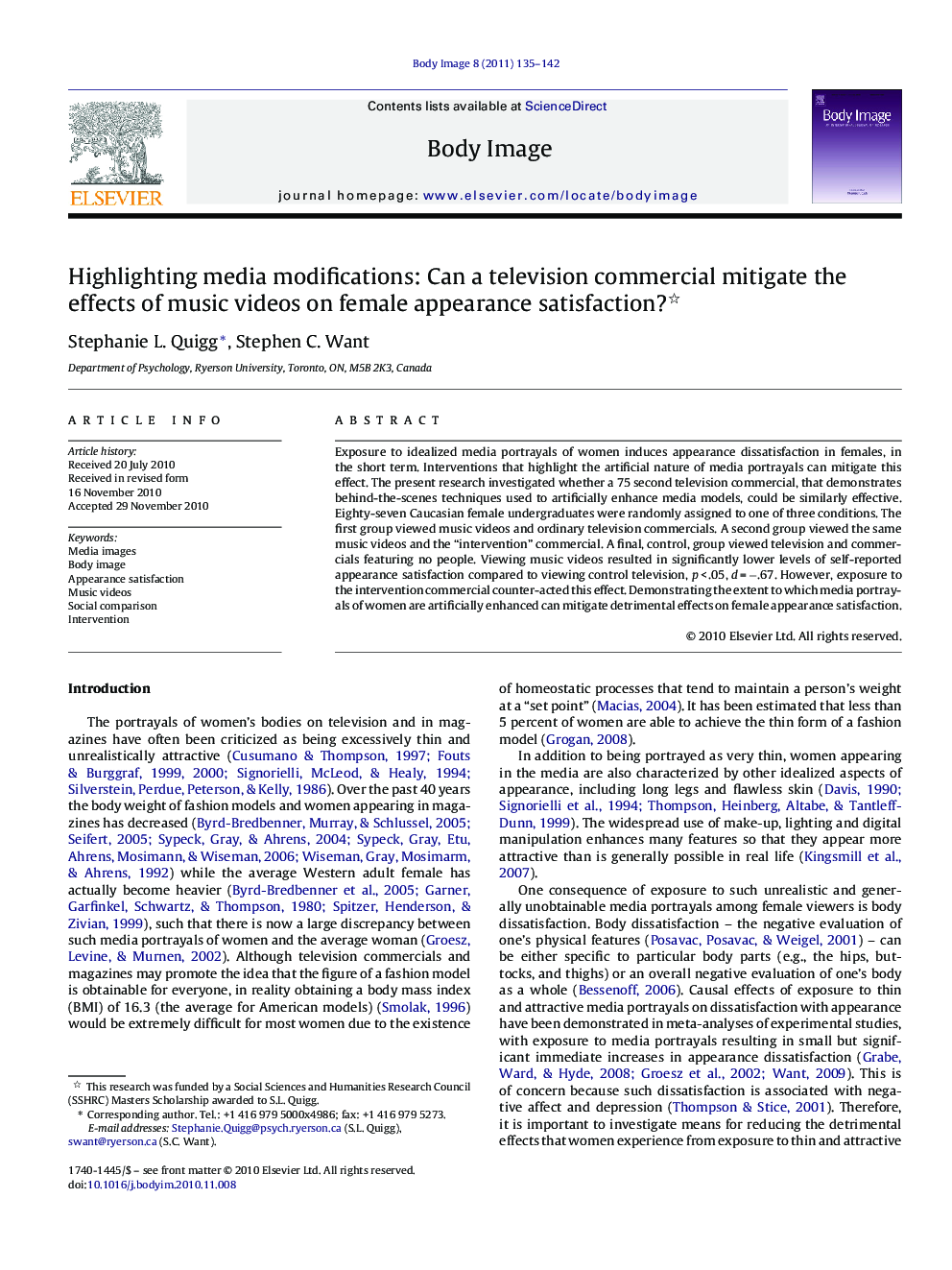| Article ID | Journal | Published Year | Pages | File Type |
|---|---|---|---|---|
| 903178 | Body Image | 2011 | 8 Pages |
Exposure to idealized media portrayals of women induces appearance dissatisfaction in females, in the short term. Interventions that highlight the artificial nature of media portrayals can mitigate this effect. The present research investigated whether a 75 second television commercial, that demonstrates behind-the-scenes techniques used to artificially enhance media models, could be similarly effective. Eighty-seven Caucasian female undergraduates were randomly assigned to one of three conditions. The first group viewed music videos and ordinary television commercials. A second group viewed the same music videos and the “intervention” commercial. A final, control, group viewed television and commercials featuring no people. Viewing music videos resulted in significantly lower levels of self-reported appearance satisfaction compared to viewing control television, p < .05, d = −.67. However, exposure to the intervention commercial counter-acted this effect. Demonstrating the extent to which media portrayals of women are artificially enhanced can mitigate detrimental effects on female appearance satisfaction.
Research highlights► Viewing music videos significantly lowered women's levels of appearance satisfaction. ► Highlighting the artificial nature of such media images has mitigating potential. ► An intervention commercial counter-acted the detrimental effects of the music videos.
